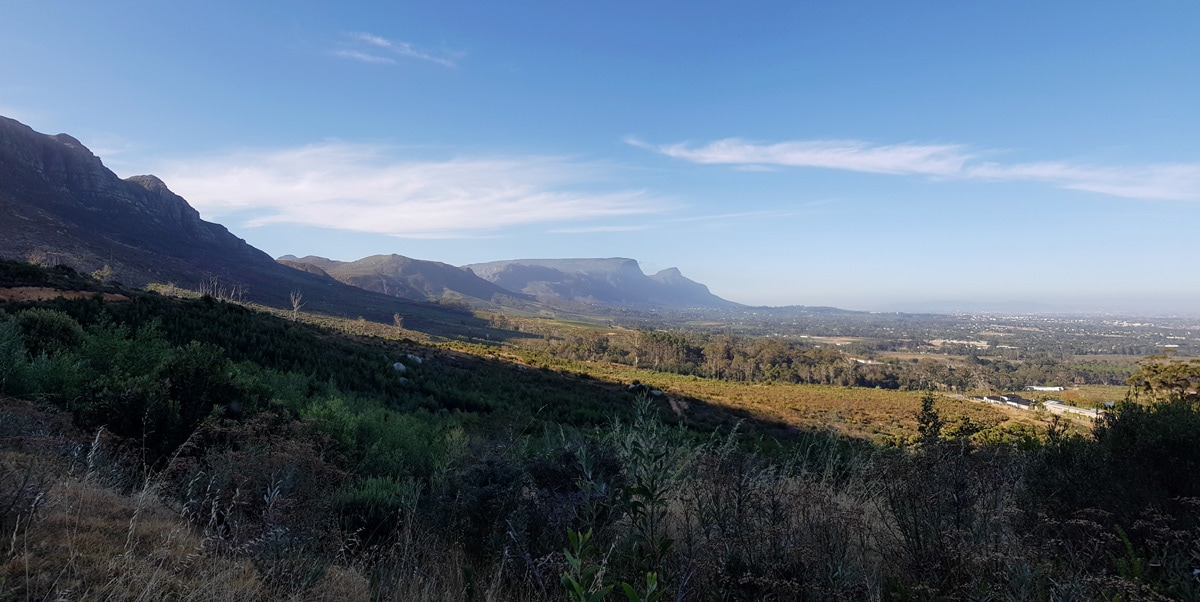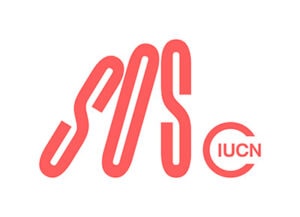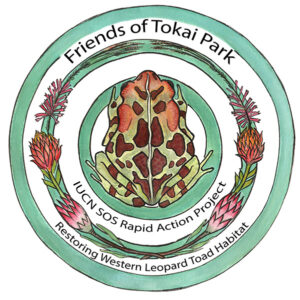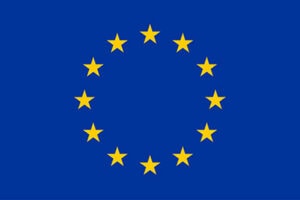FoTP launches IUCN Save Our Species Rapid Action Grant Project
Restoring Western Leopard Toad (EN) habitat at Tokai Park
Reading Time: 4 minutes
By Leila Mitrani and Dr Alanna Rebelo
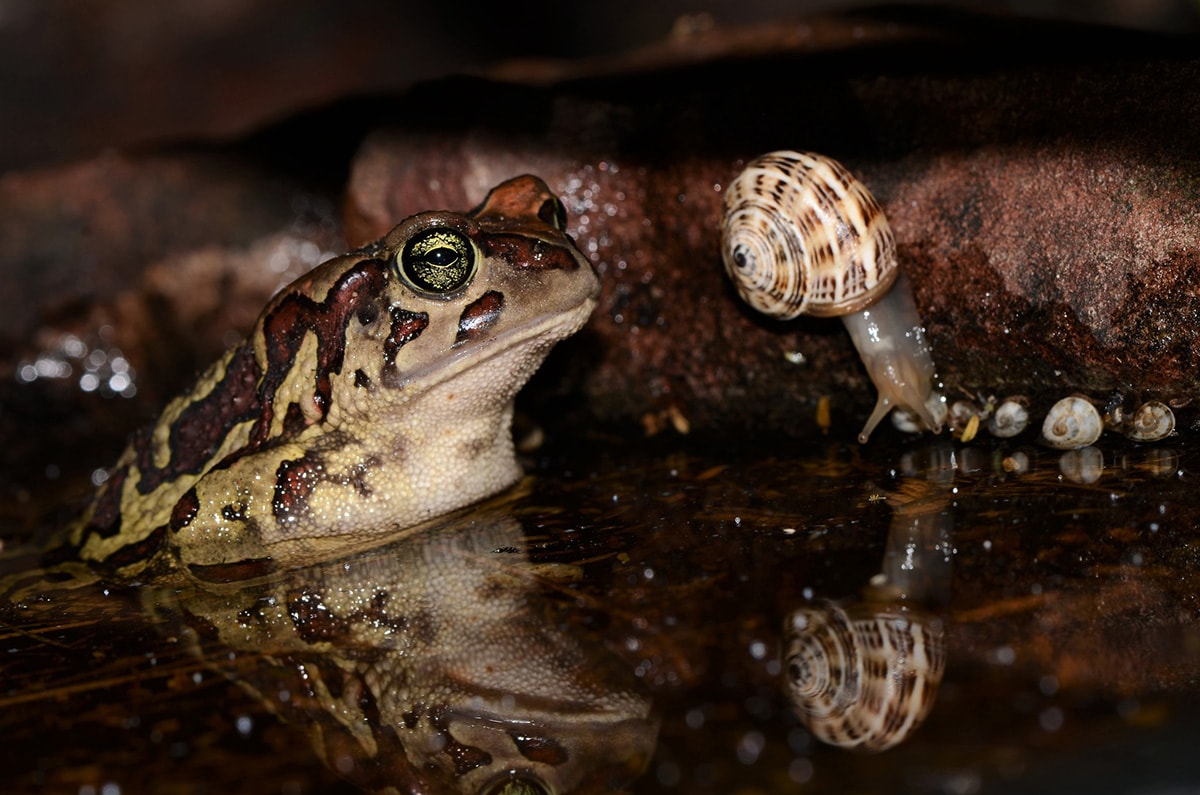
The charismatic and iconic Endangered (EN) Western Leopard Toad is important for natural pest control and is threatened by habitat loss and road deaths. During breeding season each year, volunteers raise public awareness and assist toads in search of breeding ponds to safely cross our roads.
Friends of Tokai Park has now launched an exciting new project to restore the habitat of the Western Leopard Toad (EN) at Tokai Park, South Africa.
This project focuses on the Western Leopard Toad’s habitat in Critically endangered (CR) Peninsula Granite and Cape Flats Sandstone Fynbos – in which the toads spend most of the year foraging – as well as wetter areas such as riparian zones and wetlands associated with breeding.
Funding was granted for the project by IUCN Save Our Species and the European Union, which hope to address delays in conservation-related work caused by the COVID-19 pandemic.
In partnership with SANParks, this new Friends of Tokai Park rapid project will have two main components:
- tackling alien vegetation, and …
- re-vegetating rare and locally missing indigenous species.
The project will create 15 new short-term jobs, including 12 paid internship positions for recent graduates with ecological expertise from around the country.
Part 1: Tackling alien vegetation
The project will continue the battle against alien vegetation and will tie in with Friends of Tokai Park’s existing Adopt-a-Plot programme and ongoing volunteer hacking activities. In addition, the interns will augment work done by Working for Water, performing detailed and high-quality, ecologically strategic follow-up with specific focus on treating hard-to-eradicate alien species that coppice and require repeat attention.
Paying particular attention to the hard-to-control Blackwood, the interns will use tried and trusted methods and test if some more-recently developed methods are viable at a larger scale.
Although targeted specifically at restoring Western Leopard Toad (EN) habitat, the project takes a holistic approach, considering whole ecosystem restoration. Invasive alien species threaten not only Western Leopard Toad (EN) habitat and Critically endangered (CR) fynbos. Invaded areas have been shown to be avoided by other charismatic animals, such as caracals and small mammals.
In addition, the higher biomass of alien vegetation, mainly trees, poses a fire hazard to adjacent residential areas. We will therefore be contributing to the protection and resilience of local communities.
Part 2: Re-vegetation of rare and locally missing indigenous species
We will be working with a well-known local business, FynbosLIFE, to restore specific areas by propagating fynbos plants using cuttings and seeds taken from the closest available site (where those species occur).
This process of propagating fynbos may sound simple but, in reality, much care is needed to ensure that only local plant populations are used (to preserve genetic integrity). This means that only species that would have occurred in the area are replanted and that there is no soil contamination or pathogen introduction.
The project will also be championing the revegetation of species such as the much-loved Silver Tree, which has suffered from pathogen-associated decline in recent years and was almost eradicated from the slopes of the Peninsula by forestry.
Early last year, some Silver Tree seedlings from Kirstenbosch Botanical gardens were planted in an experimental design to find the best planting method for the species. This work will enable us to achieve maximal survival rates.
The project to restore Western Leopard Toad habitat starts in February 2022 and ends in July 2022. To follow our progress, please keep an eye on our website and social media pages. And be sure to say hello to our friendly interns if you see them in the field!
Note: View our FoTP SOS IUCN Intern Training Programme 1-3 March 2022 image gallery and meet the team.
Funding was granted for this project by IUCN Save Our Species and the European Union, which hope to address delays in conservation-related work caused by the COVID-19 pandemic.
